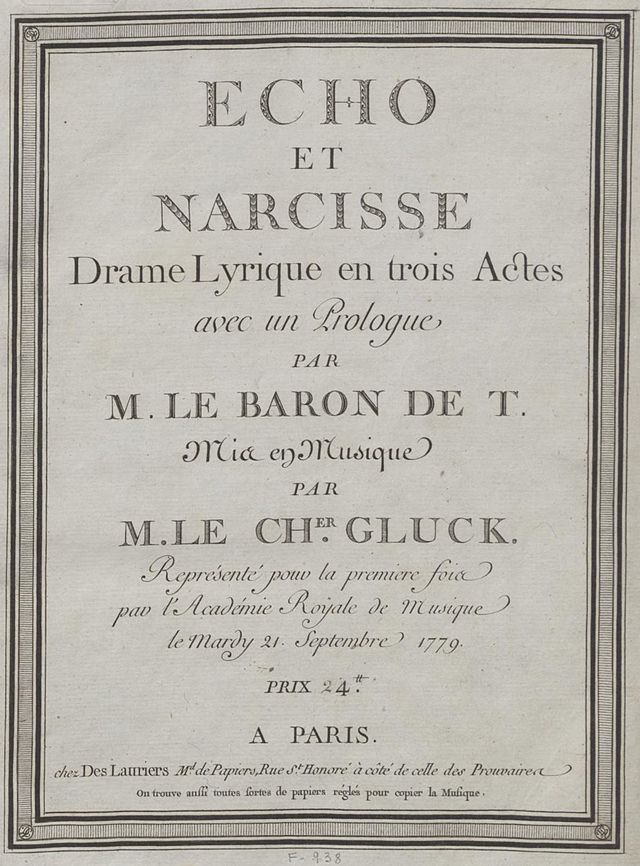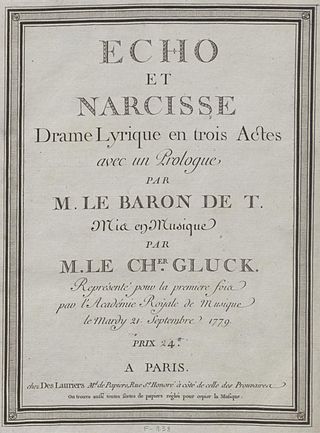Top Qs
Timeline
Chat
Perspective
Écho et Narcisse
Opera by Christoph Willibald Gluck From Wikipedia, the free encyclopedia
Remove ads
Écho et Narcisse (Echo and Narcissus) is a 1779 drame lyrique in three acts, the last original opera written by Christoph Willibald Gluck, his sixth for the French stage. The libretto, written by Louis-Théodore de Tschudi, tells the story of the love between Echo and Narcissus.

Performance history
Écho et Narcisse was first performed on 24 September 1779 by the Paris Opéra in the second Salle du Palais-Royal. The opera is in the pastoral tradition, a genre not in favor at the Opéra at the time,[1] and it was a failure, discontinued after only 12 performances. Gluck decided to go back to Vienna and never returned to Paris. He revised the work for 8 August 1780, but this version only enjoyed nine performances.
A third version was presented to the public on 8 June 1781. This was better received. However, it was infrequently produced until René Jacobs revived it in 1987 at the Schwetzingen Festival. Jacobs used the revised version as the original one has not survived, except for the libretto.
Remove ads
Roles
Remove ads
Synopsis
The nymph Écho is loved by Narcisse, but also desired by Apollo. Apollo puts a spell on Narcisse so he falls in love with his own reflection, but Cupid is eventually successful in securing a happy ending by re-uniting Écho and Narcisse.
References
Further reading
External links
Wikiwand - on
Seamless Wikipedia browsing. On steroids.
Remove ads
